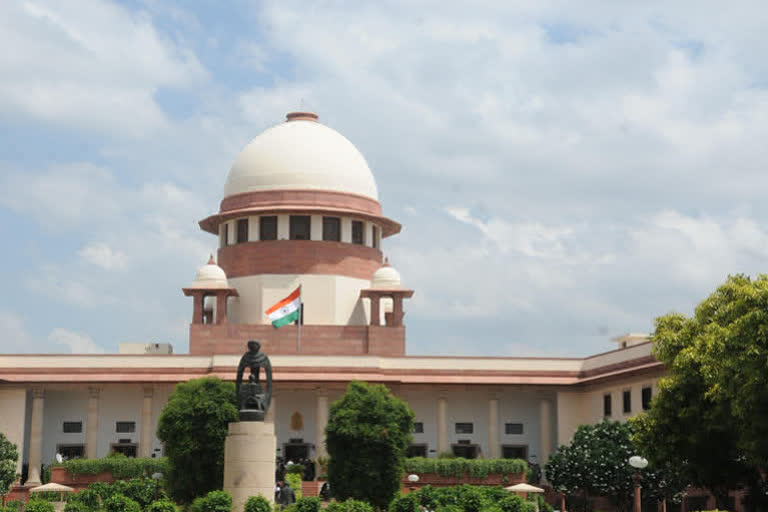New Delhi: It would be difficult to question the faith of Hindus with regard to Ayodhya as the birthplace of Lord Ram as even some Muslim witnesses have termed it as sacred for the Hindus as Mecca is for them, the Supreme Court said on Monday.
A 5-judge Constitution bench headed by Chief Justice Ranjan Gogoi was questioning senior advocate Rajeev Dhavan, appearing for the Muslim parties, on whether the divinity and the "exact form" of an idol or a deity were necessary to hold that they have "juristic personality".
"Even Muslim witnesses (during the trial) have said that Ayodhya to Hindus is as sacred as the Mecca is for them. It will be difficult to rebut the belief of the Hindus," said the bench which also comprised Justices S A Bobde, D Y Chandrachud, Ashok Bhushan and S A Nazeer.
Dhavan, arguing for Sunni Waqf Board and others including original litigant M Siddiq, said that only belief cannot be the basis to claim title and accord juristic status to the 'janmasthan' (birthplace).
He, however, strongly pitched for granting respect to Lord Ram and the Allah in a diverse country like India on the 29th day of the hearing in the politically sensitive case.
"If Lord Ram and Allah are not respected then this great nation will split apart," said the senior lawyer but strongly objected to the move to make the birthplace as a party to the lawsuit filed on behalf of deity 'Ram Lalla Viarajman' for claiming juristic status for the sacred land.
At the outset, Dhavan tried to distinguish between the legal status of the deity and the birthplace and said that the latter has been made a party with a sole aim to make a Ram temple at the site and to ensure that impediments such as law of limitation, adverse possession and acquisition do not come in the way.
"They just say Lord Ram was born here. None of the contours of the area are mentioned anywhere in the plaint. The suit is thus merely a vehicle to destroy and build a temple," he said.
"They have argued that all existing structures be demolished at Ram Janmabhoomi and a new Temple be constructed there," he added.
The bench referred to vehement submissions of Dhavan that belief is a very "tenuous" evidence and the Hindus should establish the long worship instead.
"Your (Dhavan's) first claim is that belief is tenuous as evidence. But your second argument is that belief should be manifested by way of an object. What exactly is the object you are talking about," the bench asked.
"Is it necessary for a deity or an idol to have divinity to make it a juristic personality".
The senior lawyer said there should be "some" kind of physical manifestation of a deity or an idol and even if we concede to Hindus' belief, then where are the "objective" aspects to support it.
